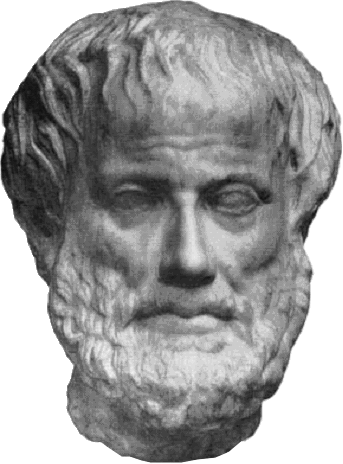“WHAT IS MAN?”
The Four Levels of Happiness
An Essay by Graham Moorhouse
 The
consideration of the above question has been enormously
complicated by modern man’s abandonment of the
very notion of objective moral truth! One may
hear for example people say such gobbledegook as: “Whether
an unborn child is a person or not is a matter of opinion.” As
a culture we have learned to talk out of both sides
of our mouths at once, because this is certainly not
the way we actually live our lives. No one for
example drives with eyes shut on the premise that whether
it is safer to drive with one’s eye shut is a
matter of personal opinion. When our own health
and well-being are at issue we start to believe very
firmly indeed in objective truth. Our doubts
about objective truth are restricted to moral truths
and only arise when it is opportune to doubt, so as
to remove obstacles from our chosen path. The
modern philosophical claim that objective truth is
merely one individual’s perception and therefore: “How
dare you impose your perceptions on me,” is
a collective hypocrisy which we slip in to and out
of at will, as and when it serves our present purpose.
The
consideration of the above question has been enormously
complicated by modern man’s abandonment of the
very notion of objective moral truth! One may
hear for example people say such gobbledegook as: “Whether
an unborn child is a person or not is a matter of opinion.” As
a culture we have learned to talk out of both sides
of our mouths at once, because this is certainly not
the way we actually live our lives. No one for
example drives with eyes shut on the premise that whether
it is safer to drive with one’s eye shut is a
matter of personal opinion. When our own health
and well-being are at issue we start to believe very
firmly indeed in objective truth. Our doubts
about objective truth are restricted to moral truths
and only arise when it is opportune to doubt, so as
to remove obstacles from our chosen path. The
modern philosophical claim that objective truth is
merely one individual’s perception and therefore: “How
dare you impose your perceptions on me,” is
a collective hypocrisy which we slip in to and out
of at will, as and when it serves our present purpose.
The German philosopher Alice von
Hilderbrand, famously responded to a student who told
to her not to impose her opinions upon her: “My
dear, if it is true, it is not my truth but our truth. We
can only lay claim to personal ownership of our errors.”
If we can agree that there is such
a thing as objective truth, the next issue we must
explore is: Can one actually arrive at an objective
methodology for defining things? The best place
to start such an intellectual journey is with a noble
pagan who lived 400 years before Jesus Christ, the
Greek philosopher, Aristotle. Aristotle argued
that a thing should be defined by its end, purpose, raison
d’être. Thus an acorn is not
merely a small greeny brown thing, but is something
with the power and purpose of oak tree, or “oak-treeness”.
The purpose and end of man, Aristotle
argued, was happiness - for happiness is self-evidently
what all men seek and strive for, it is what he directs
all his powers towards. So this universal quest
for happiness defines humanness. “Happiness” Aristotle
pointed out is the only thing willed by man for its
own sake. Everything else is willed for the sake
of happiness.
But this is where the debate really
becomes interesting, for there are according to the
noble pagans four levels of happiness. The truth
behind this insight is now confirmed by theology, philosophy,
psychology, sociology and indeed many modern disciplines. These
disciplines may use different terminology, but they
are all basically talking about the same thing that
Aristotle was talking about 2400 years ago. These
four levels are summarised as follows
Happiness Level 1
Happiness level 1 is simply sensual
gratification: enjoying a good meal, sexual gratification,
owning the latest BMW or gadget, watching a good football
match, etc. The pleasures of happiness level
one are intense but short lived. There is nothing
wrong with happiness level 1 unless one puts the little
word ONLY in front of it. When you do
this, you will sooner or later hit a crisis where life
seems to be pretty shallow and empty.
Happiness Level 2
Happiness level 2 is ego gratification:
being the best, the fastest, smartest, funniest, most
liked and esteemed, admired, powerful etc. Again
there is absolutely nothing wrong with happiness level
2, it’s what drives progress, makes us build
the Sydney Opera House, etc., and it’s what makes
the fundamentals of happiness level 1 healthy - we
now eat and relax to perform better.
There is nothing wrong with happiness
level 2, unless one again puts that little word ONLY in
front of it. When we do this, others become competitors,
a challenge, problems. Men locked into happiness
level 2 may have several failed marriages. Friends
and wives are for such people there to stroke their
ego and tell them how wonderful they are. When
they cease to do this, they are rejected for a new
relationship. The worlds of politics and entertainment
are filled with HL2 types.
Happiness level 3
Happiness level 3 is best summed
up by the word “love”. It is reached
when we genuinely move from the self to the other. That
is, when we start to live to serve another, or others,
or a cause that will be of benefit to others. HL3
involves commitment, giving, loyalty, care, concern,
forgiveness, acceptance, compassion and above all self-sacrifice. HL3
again makes HL2 healthy: we start to achieve, to serve. I
want to be a good lawyer so that I may give my children
a good education and represent the poor well, for example. Other
people are now no longer mere competitors or ego-strokers. Others
become partners with whom I can work in a much more
noble enterprise than my own ego-gratification.
But HL3 also has its crisis when
we again put ONLY in front of it. Why? Because
human beings do not just want love, we want ultimate
unconditional love. We do not just want truth,
we want ultimate unconditional truth. We do not
just want beauty, we want ultimate unconditional absolute
beauty. We do not merely want being, we want
absolute being.
But I cannot be an ultimate unconditional
infinite anything for you, nor you for me. Why
not? Because I’m a creature, finite, limited. The
more deeply we know one another, the more apparent
that becomes and the more disillusioned we become. The
crisis in the HL3 person leads to cynicism, the feeling
that whatever I commit myself to inevitably disappoints
me in the end. The philosopher John Paul Sartre
summed it up when he wrote: “I seek perfection,
but perfection does not exist, therefore life is absurd.”
Happiness level 4
The happiness level 4 person simply
acknowledges his human desire for the ultimate and
consciously seeks a relationship with God, the ultimate
truth, love, goodness, beauty and being. HL4
involves surrender. The kernel of HL4 is summed
up in the prayer: “Thy will be done.” The
true HL4 person enjoys a great inner peace. HL4
makes HL3 healthy, for you no longer need to be perfect
for me and I no longer seek the ultimate in you. I’m
easy and comfortable with the fact that we are deeply
flawed and very finite. This liberates me to
love unconditionally. One of the greatest examples
of an HL3/4 personality in our own times would be Mother
Teresa.
Where we, or more importantly, our
culture, sits on the “staircase” of happiness
affects every issue of life. It affects our view
of success, quality of life, suffering, ethics, freedom,
human rights, the common good, personhood and love.
“Personhood” is the real
biggie. If the culture is built on happiness
level 1 attitudes, then it is focused on things - eating
things, consuming things, owning things. In such
a culture we will tend to look upon other people as
just things. And if you are a thing, I’m
a thing. This is hardly likely to do much for
our self-esteem and abortion and euthanasia are unlikely
to cause us too much loss of sleep.
If we are in an happiness level 2
culture, i.e. ego gratification, where outstripping,
performing, achieving, competitive advantage, is the
name of the game, once I become weak and dependant
then euthanasia makes perfect sense. “Persons” in
such a culture are either winners or losers, and once
nature has determined from here on you are going to
be a loser in competitive terms, then self murder makes
perfect sense. And if a new baby is getting in
the way of you winning a Wimbledon final, why not murder
it by abortion. Winning is what life is all about. Winning
is what makes you happy and all human beings seek happiness
don’t they?
For the happiness level 3/4 person
and culture all this is just too shallow to contemplate. To
the happiness level 4 person human beings are mystery,
with the potential for infinite love, beauty, justice,
goodness and being. Before such a mystery the
only appropriate response is to genuflect. And
this is as true for the one cell zygote in a woman’s
fallopian tubes as it is for you and me - for all three
of us are defined by the same potential thirst and
capacity for the infinite, the same potential perfection
of our powers.
Indeed, from the perspective of level
3 & 4, the six months we spend bed-ridden, incontinent
and slowly losing our faculties may be the most fruitful
six months of our entire lives. They may be the
time that we spend doing the most forgiving, the most
intense loving, the most profound passing on of wisdom
to the younger generation, the most invoking in others
of that care, love, compassion and self-sacrifice that
redeems humanity, and ennobles us by lifting us above
mere brutes. Euthanasia, from this perspective
would mean rubbing out the most fruitful months and
years of people’s lives.
This essay is based on, Healing
the Culture, a work of Professor Robert J Spitzer
SJ, President of Gonzaga University. Available
from Ignatius Press.
Father Spitzer, President of the
Magis Institute and former President of Gonzaga University,
has been using the principles in this book to
educate people of all backgrounds in the philosophy
of the pro-life movement. The tremendous positive response
he has received inspired him to start the Life Principles
Institute. This book is one of the key resources used
for this program.
This work effectively draws out the
connections between personal attitudes toward happiness
and the meaning of life, and the larger cultural issues
such as freedom and human rights. Relying on the wisdom
of the ages and respecting the human persons' unique
capacity for rational analysis, this work offers definitions
of the key cultural terms affecting life issues, including
Happiness, Success, Love, Suffering, Quality of Life,
Ethics, Freedom, Personhood, Human Rights and the Common
Good.
"An excellent resource for examining
the life issues in their broadest and most profound
context. It is also an encouraging and accessible tool
for responding to the Holy Father's challenge to build
a 'culture of life'."- Cardinal
Francis George, Archbishop
of Chicago
